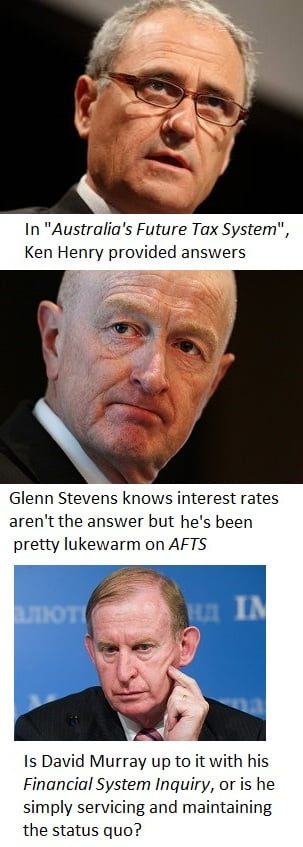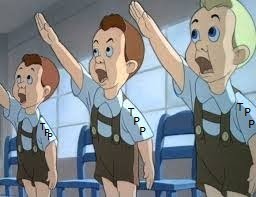
All posts by Bryan Kavanagh
ACTEW CORRUPT PRACTICE
SUBMISSION TO ACT GOVERNMENT TREASURY PANEL
Note: ACTEW Corporation (ACTEW) owns and operates the water and sewerage assets and business in the Australian Capital Territory.
____________________________________________________________
14 May 2014
Industry Panel Secretariat
GPO Box 158
Canberra ACT 2601
Dear Sirs
ACTEW STATEMENT OF FACTS AND CONTENTIONS
I wish to refer the Panel to my previous submissions over many years to both the Independent Competition and Regulatory Commission, the Productivity Commission, the Queensland Competition Authority and other regulatory inquiries. I am happy to provide copies.
The fundamental problem the Panel faces is that the system of regulating monopoly utilities in Australia is fundamentally institutionally corrupt.
It is a corruption of economic thought in that it mistakenly assumes that maximisation of profits in a monopoly situation has some relationship to economic efficiency. That is the reverse of the truth. Economic efficiency requires that society obtain satisfaction of its needs at least cost.
In a competitive market, profit maximisation is valuable because it drives the search for least cost solutions: in a monopoly market, profit maximisation really represents the imposition of a toll or tax upon the community.
It is a corruption of legal process in that hardly ever is evidence tested on oath and the victims of monopoly abuses are forced to pay through their tolls and charges for the expensive legal and technical advice used to justify the abuses perpetrated against them. There is no equality of funding in any of these matters and the illusion that independent regulatory commissions are consumer watchdogs is false. They cannot be. They are meant to be independent decision-makers, not advocates for consumers.
The result of this one-sided system is that consumers are never properly represented. It was indeed remarkable that ICRC actually tried to do something sensible.
Terence M. Dwyer
FTIA, B.A. (Hons), B.Ec. (Hons) (Sydney) M.A., Ph.D. (Harvard), Dip. Law (Sydney)
THE BIG QUESTION

LATEST MICHAEL HUDSON – MAX KEISER INTERVIEW (FROM ABOUT HALF WAY MARK)
LAND-BASED REVENUES (RENTS) CREATE, TAXES DESTROY
“Put to the vote: as many are of the opinion that a public tax upon the land ought to be raised to defray the public charge, say ‘yea’.” …. “Carried in the affirmative, none dissenting.”
- Philadelphia’s first tax law, 30 January 1693
Clearly, it was once understood that land values—reflecting relative size, shape, topography, location of the allotment as to services, etc., were the perfect revenue base. The owner of a site should pay more for the privileges it held over other sites (and vice versa).
There was no consideration of taxing incomes nor local sales.
It was recognized that site values are community-created, owing nothing to what any individual had done on the site.
The American property tax has now come to confuse land and buildings, thereby placing a penalty on construction.
In Australia, the state of Victoria—which used to allow rating on the value of sites as though they were vacant (indeed half the population existed in site value rating municipalities in the 1990s)—now also taxes land and buildings together.
Although municipalities in the states of Queensland and New South Wales rate only on vacant land/site values, enterprising speculators have seen to it that an excellent principle is defeated by applying a “minimum rates” charge. This, of course, has the effect of those on the minimum rate therefore subsidising the holders of more valuable sites. (Joe Hockey would be pleased with this outcome!) In Queensland, former Gold Coast City Council mayor, Ron Clark, actually boasted that most of his ratepayers were on the minimum rate. (Sounds good, doesn’t it?)
The retrogression away from land-based revenues since the Progressive Era, has been matched by increasingly greater taxes on incomes and sales, revenues that are both more difficult to assess and collect, quite apart from having an anti-productive effect.
QUESTION: Why have we gone backwards in this fashion?
ANSWER: Because the rent-seeking 1% have had undue influence in designing our revenue systems.
QUESTION: What happens when reversal of this pathology is recommended?
ANSWER: The 1% resist it at any cost – even at the cost of an economic depression. (Refer to previous post.)
Such has become our ‘democracy’.
PSSST! [TONY, A HINT]

As the main crises are the property bubble and Joe Hockey’s terrible budget, Tony, why not take another peep at Ken Henry’s panel’s recipe to get the Australian economy up and going again?
_____________________________________________________
“economic growth would be higher if governments raised more revenue from land and less revenue from other tax bases”. – The Henry Tax Review, 2008
KILL THREE BIRDS WITH ONE STONE ON PERTH AIRPORT LINK
VALE, PAX AMERICANA
7 years on, the 1% has ‘won’.
Jamie, you need to understand the 1% maintained its position by privatising the public’s land and natural resource rents.
123RD HENRY GEORGE COMMEMORATION DINNER ….

…. will be delivered by Professor John Freebairn, Wednesday 3 September 2014 at the Royal Society in Melbourne.
TPP AGREEMENT: “FINANCIAL MISSILES”
 Eighty per cent of Australian mining is overseas-owned, and these foreigners joined locally-based miners to resist the Rudd Labor government’s proposed resource super profits tax (RSPT), spending $22 million in campaigning and advertisements against Australians capturing their own resource rents.
Eighty per cent of Australian mining is overseas-owned, and these foreigners joined locally-based miners to resist the Rudd Labor government’s proposed resource super profits tax (RSPT), spending $22 million in campaigning and advertisements against Australians capturing their own resource rents.
The campaign was effective: it worked by scaring people. In one of the greatest political cop-outs in Australian history, the fearful Gillard-led Labor government immediately did a quick back-flip deal with a handful of big mining companies to water down the RSPT into the lily-livered minerals resource rent tax (MRRT).
This matter ought to have provided a lesson for us. Australians should have come to see it as a fraud visited upon them by private rent-seeking interests with plenty of money to spend on propaganda. Petty political issues and sporting matters diverted public discussion, however, and the question of capturing our mining rents has become a dead letter.
The next matter on which politicians are about to sell Australians out to overseas interests is the Trans-Pacific Partnership. Be warned! Readers’ time would be well spent in listening to Geraldine Doogue’s interviews this morning regarding the downside of our political elite wishing to lock Australians into the vicissitudes of foreign investment:-
